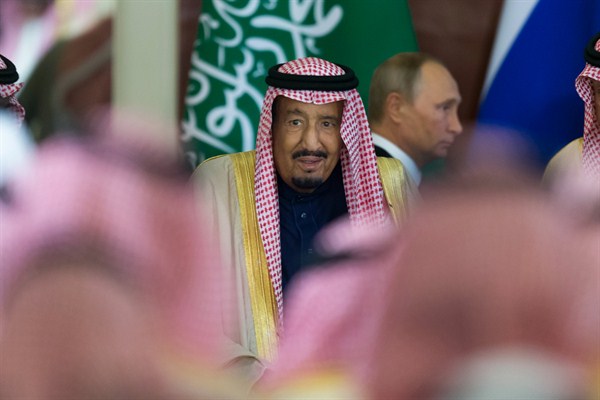When U.S. President Donald Trump visited Saudi Arabia last May, making it the first stop in his first foreign trip as president, he unleashed a wave of euphoria in the kingdom. The Saudis viewed Trump as a like-minded leader, whose ascent augured a future of closely coordinated foreign policy and firm advances for a U.S.-backed Saudi Arabian agenda in the Middle East. But five months later, in a twist few could have anticipated, Saudi King Salman landed in Moscow to meet with Russian President Vladimir Putin, signaling that Trump’s embrace of the kingdom has proved less fruitful than the Saudis had expected.
The arrival last week of Salman and a huge Saudi delegation—some 1,500 people—was a major event in Russia. Salman was the first reigning Saudi monarch to visit the Russian capital, and the streets were filled with posters promoting “Saudi Culture Week,” one of the many events held in conjunction with the Salman-Putin summit.
The visit was a recognition that Russia has become a major player in the Middle East. It was undoubtedly a feather in Putin’s cap, but its significance was far more than cosmetic.

